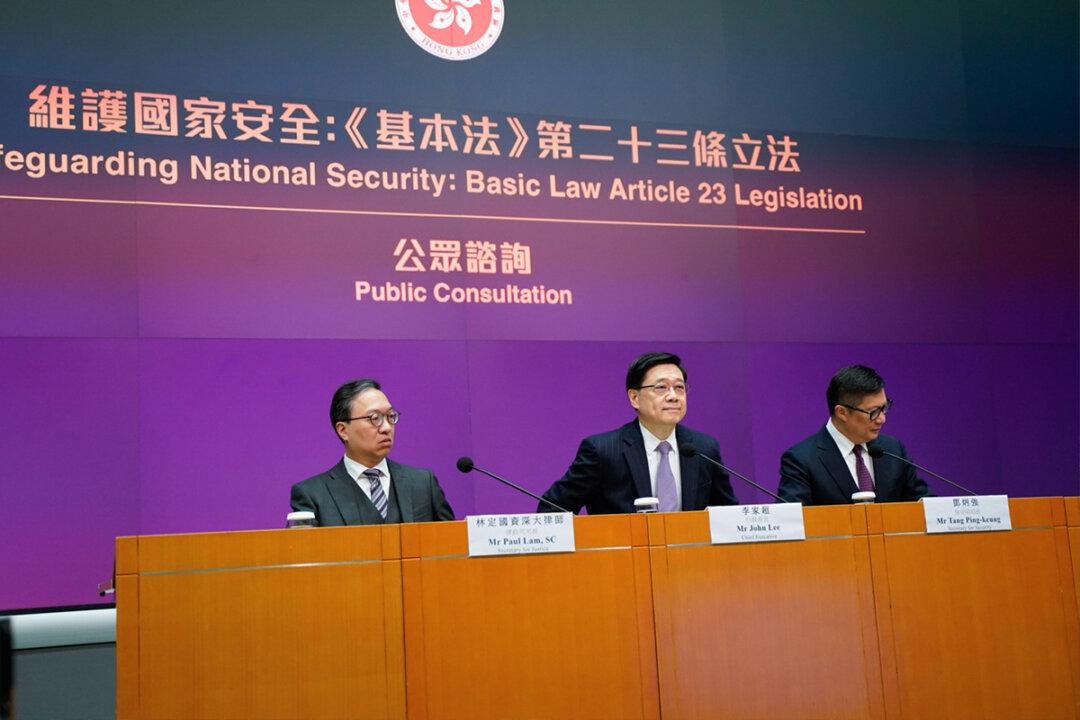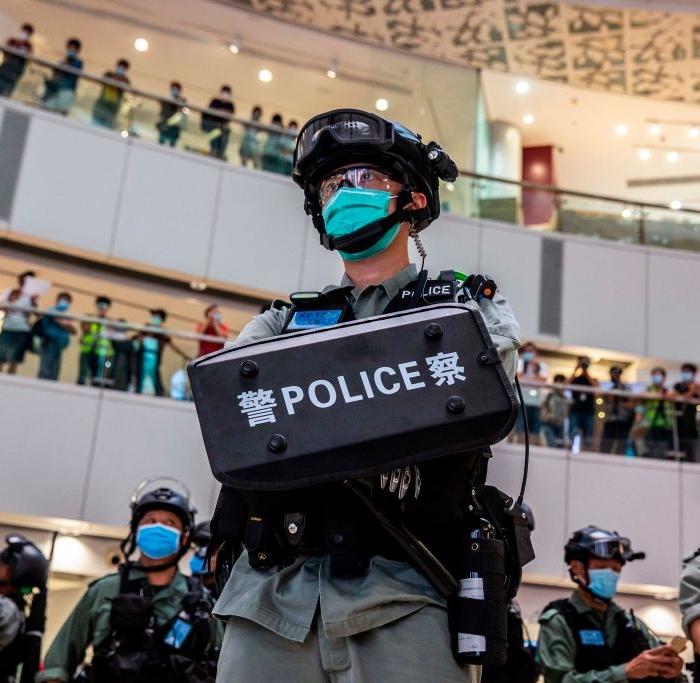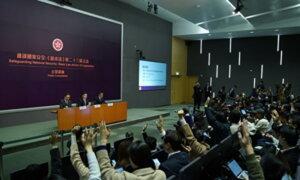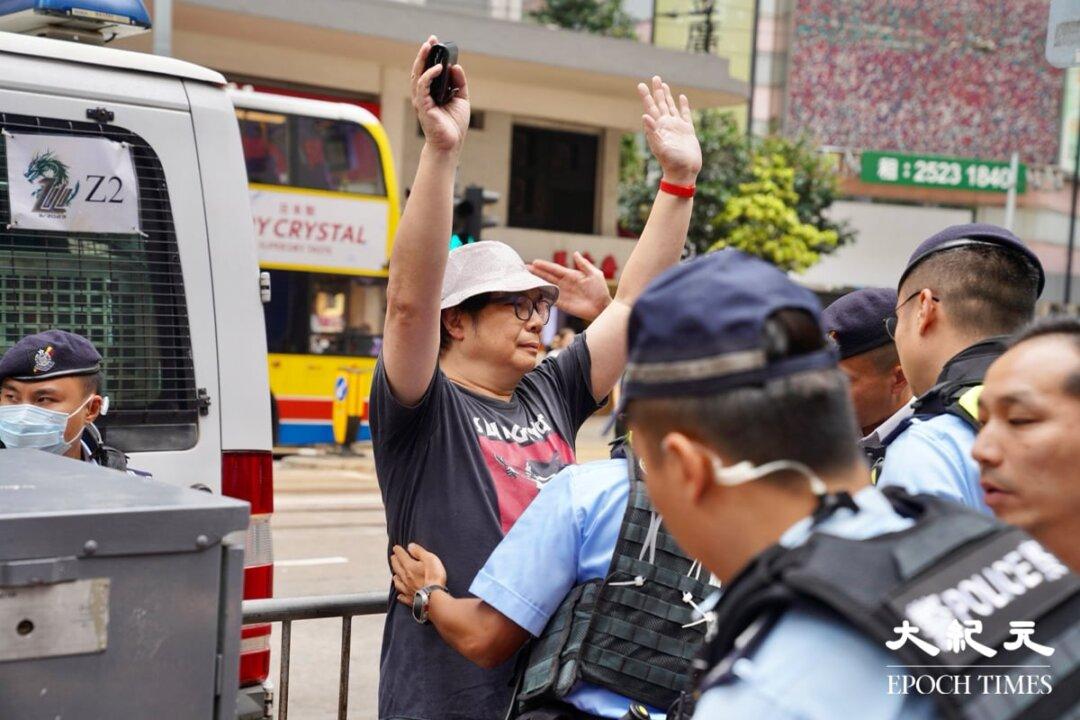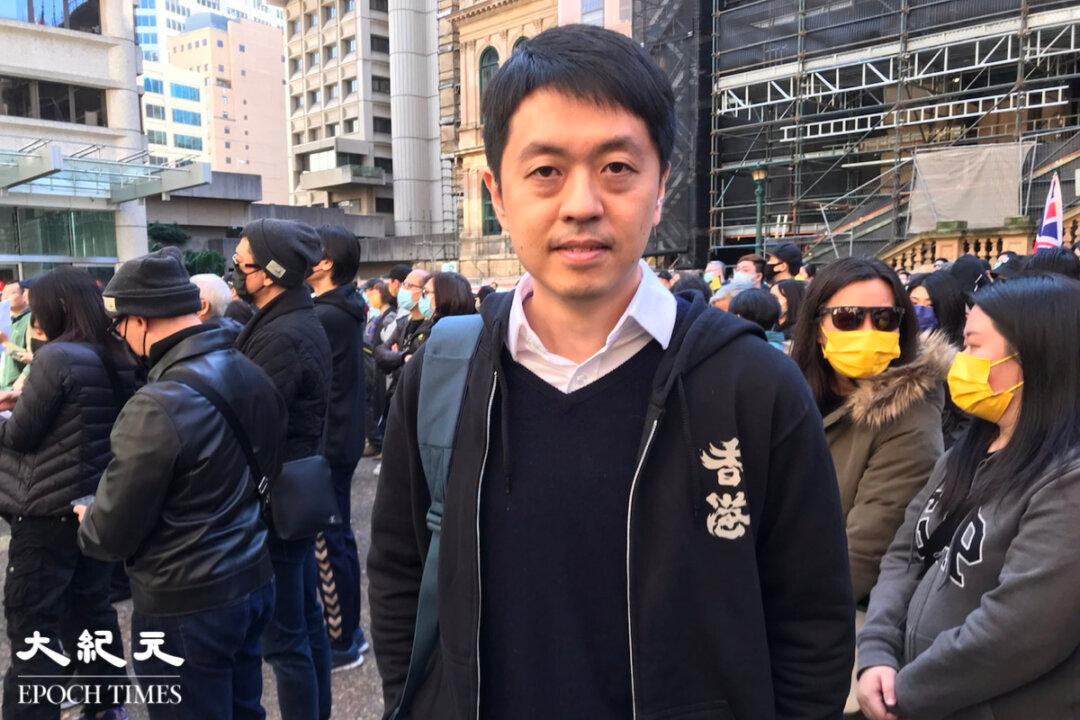The crime of “failing to disclose the commission of treason by others” under Hong Kong’s fast-tracked Article 23 legislation has drawn attention to the safety of clergies who keep confessions confidential.
The provision on concealment of treason states that if any Chinese citizen knows that another person has committed, is committing, or is about to commit the crime of “treason,” they must disclose it to the police as soon as reasonably practicable after becoming aware of it, or else they would be guilty of a crime by not reporting the information.
Rev. Canon Peter Douglas Koon, a legislative councilor of the election committee who is a pastor, asked at a subcommittee on March 7 whether clergymen would violate the law if they accepted confessions from believers and did not disclose them.
Secretary for Justice Paul Lam Ting-kwok responded that the scope of enforcement of “concealment of treason” was very clear and “relatively targeted.” For instance, it applies if some people say in their confessions, “I am going to go to an army tomorrow to overthrow the Hong Kong SAR or fight against the state,” but he believed that the likelihood of such a scenario is relatively low.
When asked why the legal profession is entitled to privilege but the religious sector is not, Mr. Lam explained that it is because it touches on the Basic Law or the Hong Kong Bill of Rights, which states that anyone has the right to seek legal advice.
Catholic Diocese: Penance Confidentiality won’t Change
Catholic Diocese of Hong Kong responded on March 15, affirming that while the Diocese acknowledges the obligation as citizens to safeguard national security, “the legislation of Article 23 will not change the confidentiality of penance practiced by the Church.”Priest: I won’t Betray God
Catholic priest Law Kwok Fai told Christian Times that confession is a secret, a believer’s penance to God, which cannot be disclosed under any circumstances, that priests are used to forgetting the contents of the confession after leaving the room, and that the Church’s responsibility is to help the confessor to see God’s mercy, while priests can persuade people to repent and mend their ways.Experts Condemn, Calling on Pope to Speak Out
On March 13, 16 international experts in freedom of religion or belief in a letter, expressed “profound and grave concerns” about Article 23’s implications, stating that it “directly threatens religious freedom, and in particular the confidentiality of the Sacrament of Penance in the Catholic Church.”The letter’s organizers are Benedict Rogers, the co-founder and Chief Executive of Hong Kong Watch, and Frances Hui, an exiled Hong Kong activist who is the Policy and Advocacy Coordinator at the Committee for Freedom in Hong Kong Foundation and is currently wanted by the Hong Kong National Security Department.
“For many religious traditions, and especially for the Catholic Church, the practice of what is known as the Sacrament of Penance (otherwise known as the Sacrament of Reconciliation or “Confession”) is a religious act of absolutely pivotal, sacrosanct importance.
“At the heart of the Sacrament of Penance is the absolutely vital principle of confidentiality.
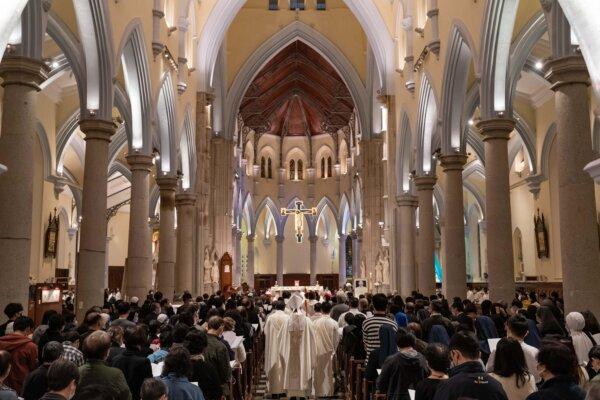
“A confession is made by an individual, before a priest, in front of God and what is said in that conversation stays completely confidential between only three beings: the person making their confession, the priest hearing that confession, and God.
“While a priest might encourage a penitent who has committed a serious crime to confess that crime to the authorities, the priest cannot report it himself and must never be held criminally liable for having heard that confession.”
“To force a priest to reveal what has been said in Confession, against his will and conscience and in total violation of the privacy of the individual confessing, is a total violation of Article 18 of the Universal Declaration of Human Rights and as such is completely unacceptable and must be condemned by people of conscience of all faiths and none throughout the world.”
The letter calls on Pope Francis and the Vatican, the Archbishop of Canterbury Justin Welby, other global religious leaders, and the international community to take urgent collective action to defend religious and belief freedoms in Hong Kong.
Signatories of the letter include the former Chair of the U.S. Commission on International Religious Freedom Nadine Maenza, the Director of the Hudson Institute’s Center for Religious Freedom Nina Shea, and the Ethics and Public Policy Center’s Senior Fellow George Weigel, as well as several academics and Non-Governmental Organisations (NGOs).
The Hong Kong authorities issued a statement right after the co-signed letter was published, describing Hong Kong Watch as an anti-China organization and its letter as a smear.
